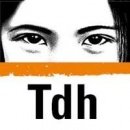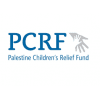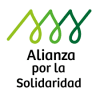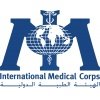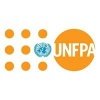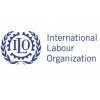Consultant – Lead Researcher
Terms of Reference
Conducting MHPSS Needs Assessment for Children in Gaza: 2021 Escalation
External Consultant – Lead Researcher
Background
Terre des hommes (Tdh) Lausanne is a leading Swiss child-relief agency with a strong mandate worldwide on restorative child justice, which accumulates over 40 years of experience in the Palestinian context. Tdh is a well-recognized actor in Palestine with a long and fruitful collaboration vis a vis justice stakeholders and national institutions on the policy, capacity building and specialized service provision components, chiefly. The TdH Multi-Country Delegation for Jordan and Palestine has its main office in Amman, Jordan with a technical unit that supports all programming in Palestine.
Terre des hommes is committed to delivering sustainability and impact for lasting change in the conditions of vulnerable children. Tdh primarily focuses on child protection and access to justice to access, but when necessary, also engages in emergency responses to humanitarian crises. Specific interventions contribute to:
Strengthening protection mechanisms for children’s victims of violence.
Supporting victims of exploitative child labor.
Supporting child justice systems to reduce the number of children in detention
Improve access to basic health services and to establish a protective environment for the most vulnerable children during major humanitarian crises
The Mental Health and Psychosocial Support (MHPSS) needs of children and adolescents were significantly exacerbated during and after the 10-21 May 2021 escalation. This was seen as the gravest hostilities between Palestinian armed factions and Israel since 2014. In Gaza, this has worsened the existing poor humanitarian situation, including the killing and maiming of civilians, the destruction or damage of homes and infrastructure, the severe disruption in the supply of basic services, and the internal displacement of people. Other Rapid Child Protection Needs Assessments that were conducted following the escalation showed that in addition to the fear, violence, and other environmental concerns, there were numerous additional stressors for children and families including access to food, health, education and livelihoods, as well as specific challenges with access to services and medications. Compounding with Covid-19 restrictions, teachers, care givers and counsellors faced many challenges in supporting children and families during this time.
This research will build upon and complement inter-sectorial, governmental and protection research, and harmonise existing, ongoing and planned initiatives in coordination with MHPSS partners. Tdh is seeking a qualified Lead Researcher, who will lead this assessment, working in close coordination and with operational and technical support of Tdh staff.
Purpose and scope of the assessment
The purpose of this MHPSS Needs Assessment is to assess the impact of the recent escalation on children and adolescents, with existing MHPSS needs, quantitatively and qualitatively. It also aims to identify, articulate and inform the humanitarian response of the current needs, and resources required to implement appropriate and relevant mental health and psychosocial interventions, taking into consideration age, gender and diversity needs. The assessment intends to highlight intersectoral entry points, across the education, health, and other protection sectors.
The primary objectives of the MHPSS assessment are:
To identify the critical MHPSS needs for children (girls and boys, of different ages and diversity), and the support they require
To identify the current wellbeing, behaviour, and coping-mechanisms of children (girls and boys, of different ages and diversity).
To determine existing MHPSS services that are functional, as well as barriers or gaps in access to and quality of services.
The sub-objectives of the research include the following:
To identify key needs of counsellors and frontline workers and identify peer support capacities and gaps.
To identify the gender-specific needs of parents and caregivers and support required.
To share immediate, medium and long-term recommendations and requirements for the emergency response and MHPSS programming overall.
To advocate for increased investment in MHPSS initiatives in this emergency and beyond.
The assessment includes interviews with key informants and focus group discussions with community residents throughout Gaza. It will be a collaborative and participatory process, with and across agencies to ensure representative information is collected. The assessment tools are adapted from the WHO/UNHCR MHPSS Assessment Guide and the adapted International Medical Corps MHPSS Basic Rapid Assessment Tool as well as other participatory tools. The methodological approach will be in line with global best practices, including the Inter-Agency Standing Committee Guidelines on Mental Health and Psychosocial Support in Emergency Settings.
Methodology
Quantitative data
The assessment will entail collecting quantitative data through an online survey with at least 180 staff (male and female) from service providers who are engaged in psychosocial support activities and face-to-face survey with at least 380 children (targeting 50% male, 50% female) aged 12 and above.
The Lead Researcher will be responsible for structuring and presenting the findings of the quantitative data analysis within the final report. Tdh in close coordination with UNICEF will support the Lead Researcher in identifying the key informants and the participants of the focus group discussions.
Qualitative data
The qualitative part will include conducting semi-structured key informant interviews, focus group discussions, and desk review. The Lead Researcher will conduct 30 Interviews with key informants across the Gaza Strip. The key informants will be:
Protection partners and experts
MHPSS Actors (including helping the helpers)
Medical and health experts
Community and Youth leaders
Government and technical focal points,
Cluster/Sector leads (inc food security etc)
Key experts in Gaza
Additionally, the Lead Researcher will conduct 40 focus group discussions, covering the following groups:
Children (girls, boys) with disabilities
Children (girls, boys) 10 - 13 years of age
Adolescents (girls, boys) 14 – 18 years of age
Female Caregivers
Male Caregivers
Counsellors (mixed, male, female)
Teachers (mixed, male, female)
Service providers (mixed, male, female)
Main tasks of the Lead Researcher
Participate in analysing the quantitative data
Analyze all the qualitative data
Based on the comprehensive assessment findings, provide a comprehensive report with clear recommendations to service providers, including relevant ministries
Deliver documents and other deliverables on a timely manner as will be agreed on
Maintain a neutral and professional approach during the review process and during the overall course of the assessment.
Present the main findings to the relevant clusters and relevant bodies
All the costs associated with data collection will be covered by Tdh. Also, Tdh will support the Leader Researcher in identifying the key informants and the participants of the focus group discussions.
The work will be conducted over a period of 2.5 – 3 months, to be concluded by the end of June 2022.
Qualifications of the assessment team (external consultants)
Preference will be given to applicants who have proven experience in undertaking tasks of similar scope. The following qualifications are essential:
University degree in a relevant field (i.e. social sciences, social work, psychology), Master degree or Ph.D. is preferable.
Proven track record of taking part in and reporting on similar tasks:
Previous experience on conducting need assessment using data triangulation (qualitative and quantitative research methods) and data analysis.
Previous experience in qualitative data analysis, mainly thematic analysis and content analysis
Familiarity with MHPSS methodologies, interventions and practices for children, adolescents and youth.
Previous experience of work in the child protection and MHPSS sector in Gaza.
Previous experience and understanding of the psychological and social developmental needs for children and adolescents in emergency contexts.
Politically and culturally sensitive with qualities of patience, tact and diplomacy.
Excellent analytical and reporting skills – with proven authorship of reports.
Fluency in written and spoken English and Arabic.
In addition, the following qualifications and competencies are highly desirable.
Experience in/ knowledge of use of participatory and/or child friendly tools and methodologies.
Familiarity with Monitoring, Evaluation, Accountability, and Learning concepts and methodologies.
Strong computer skills and experience in digital data collection and management.
Particular requirement: No person performing any task for or on behalf of Terre des hommes must in any way be involved or associated with the abuse or exploitation of children as described in the Terre des hommes’ Child Safeguarding Policy.
Submission of Expression of Interest
Interested consultants/ firms are expected to submit a detailed expression of interest (technical and financial proposal), explaining how they meet the required knowledge and skills set, with the following components:
Proposed work schedule.
Proposed budget in ILS, including income tax, the VAT is exempted.
CV(s) of the individual(s) who will undertake the consultancy.
Example of previous similar assignments, if any.
Tdh will only consider complete applications corresponding to the required profile. Applications must include a complete CV and a covering letter and should be sent to the following e-mail address: [email protected]. Deadline for applications is April 7, 2022 at 12 pm. Applications received beyond this deadline will not be considered.
The evaluation of proposals and selection of the consultant will be made using the Quality and Cost Based Selection, with a total score calculated out of 100%, of which 70% is the weight of the Technical capacities and 30% is the weight of Financial Proposal.
It is the policy of the Terre des hommes Foundation to protect children’s rights which includes the prevention of child abuse in all forms; neglect, physical, emotional and sexual abuse.
Thank you for your interest in Terre des hommes.




